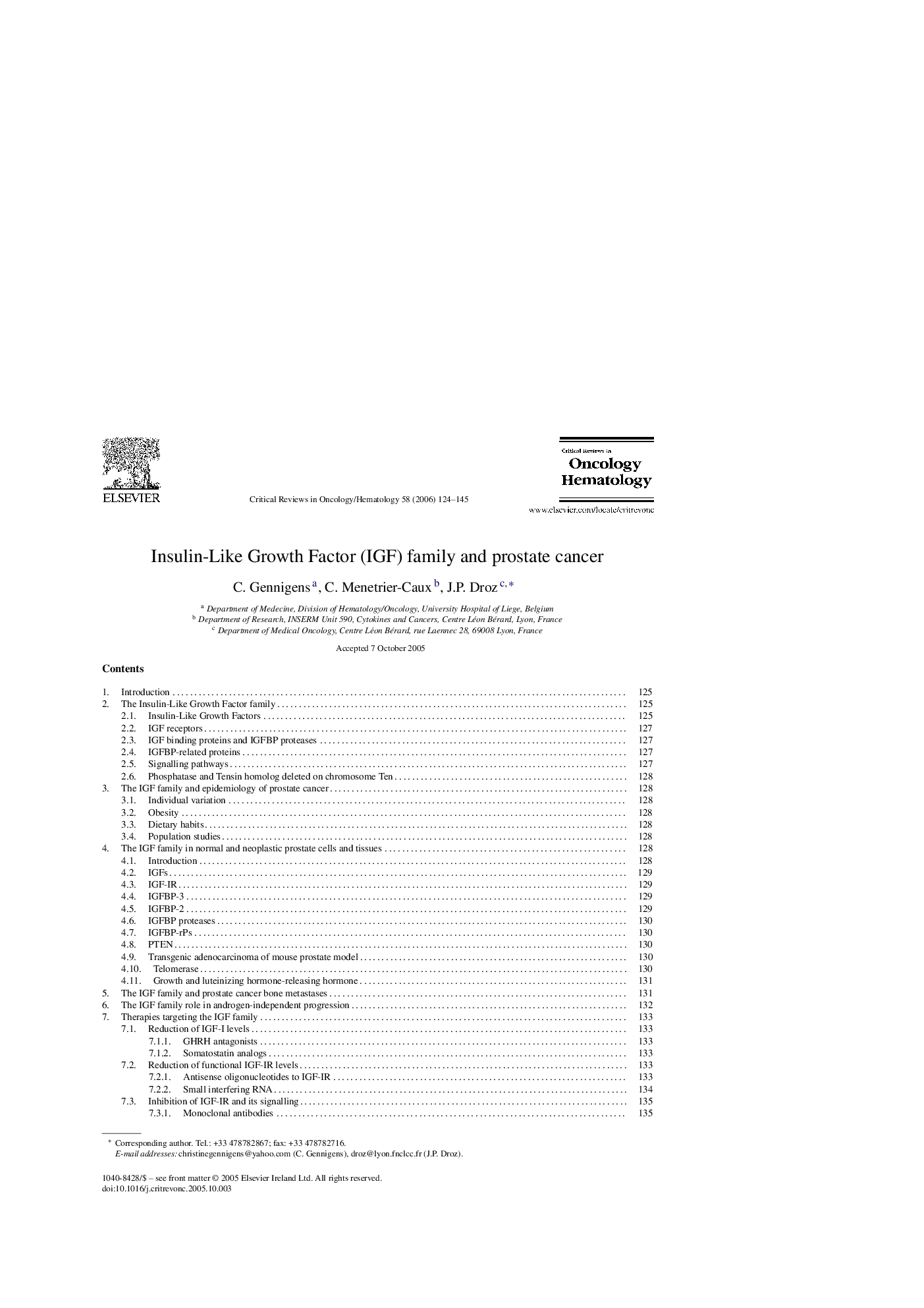| Article ID | Journal | Published Year | Pages | File Type |
|---|---|---|---|---|
| 3330384 | Critical Reviews in Oncology/Hematology | 2006 | 22 Pages |
There is abundant in vitro, animal and epidemiologic evidence to suggest that the Insulin-Like Growth Factor (IGF) family is a multi-component network of molecules which is involved in the regulation of both physiological and pathological growth processes in prostate. The IGF family plays a key role in cellular metabolism, differentiation, proliferation, transformation and apoptosis, during normal development and malignant growth. This family also seem essential in prostate cancer bone metastases, angiogenesis and androgen-independent progression. Therapeutic alternatives in men with progressive prostate cancer after androgen ablation are very limited. More effective therapies are needed for these patients. Pharmacologic interventions targeting the IGF family are being devised. Such strategies include reduction of IGF-I levels (growth hormone-releasing hormone antagonists, somatostatin analogs), reduction of functional IGF-I receptor levels (antisense oligonucleotides, small interfering RNA), inhibition of IGF-IR and its signalling (monoclonal antibodies, small-molecule tyrosine kinase inhibitors) and Insulin-Like Growth Factor Binding Proteins.
